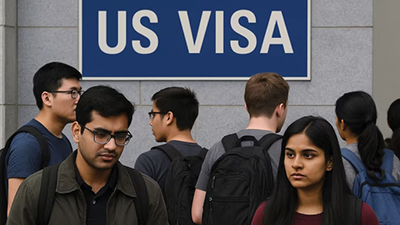The U.S. Department of State has revoked more than 6,000 international student visas, a move raising alarm among immigrant and student communities already grappling with heightened scrutiny and shrinking opportunities for higher education in the United States.
Officials said about 4,000 visas were canceled due to law violations or overstays, while another 200–300 were revoked under a broad “terrorism” designation. The State Department has not explained what specific actions fell under that label, leaving many students and advocacy groups questioning the criteria.
The revocations come alongside new rules requiring student visa applicants to provide access to their social media accounts. Consular officers are now tasked with screening for signs of political expression, support for foreign groups, or content deemed hostile to U.S. institutions. Advocates warn these measures could unfairly target international students, particularly those speaking out on issues such as the war in Gaza.
For immigrant communities, the stakes are high. International students contribute billions of dollars to local economies and enrich U.S. campuses with diverse perspectives. More than 1.1 million students from over 210 countries studied at American institutions in 2023–24. But enrollment has already been slipping, and groups like NAFSA estimate this year’s visa reductions could mean up to 150,000 fewer students on campus this fall. That would translate to $7 billion in lost spending and more than 60,000 jobs cut from communities that depend on their presence.
Secretary of State Marco Rubio defended the cancellations, saying the U.S. would continue revoking visas for “guests disrupting our higher education facilities.” But critics argue the sweeping measures punish entire communities, stigmatize immigrants, and weaken higher education at a time when universities are struggling to maintain international partnerships.

